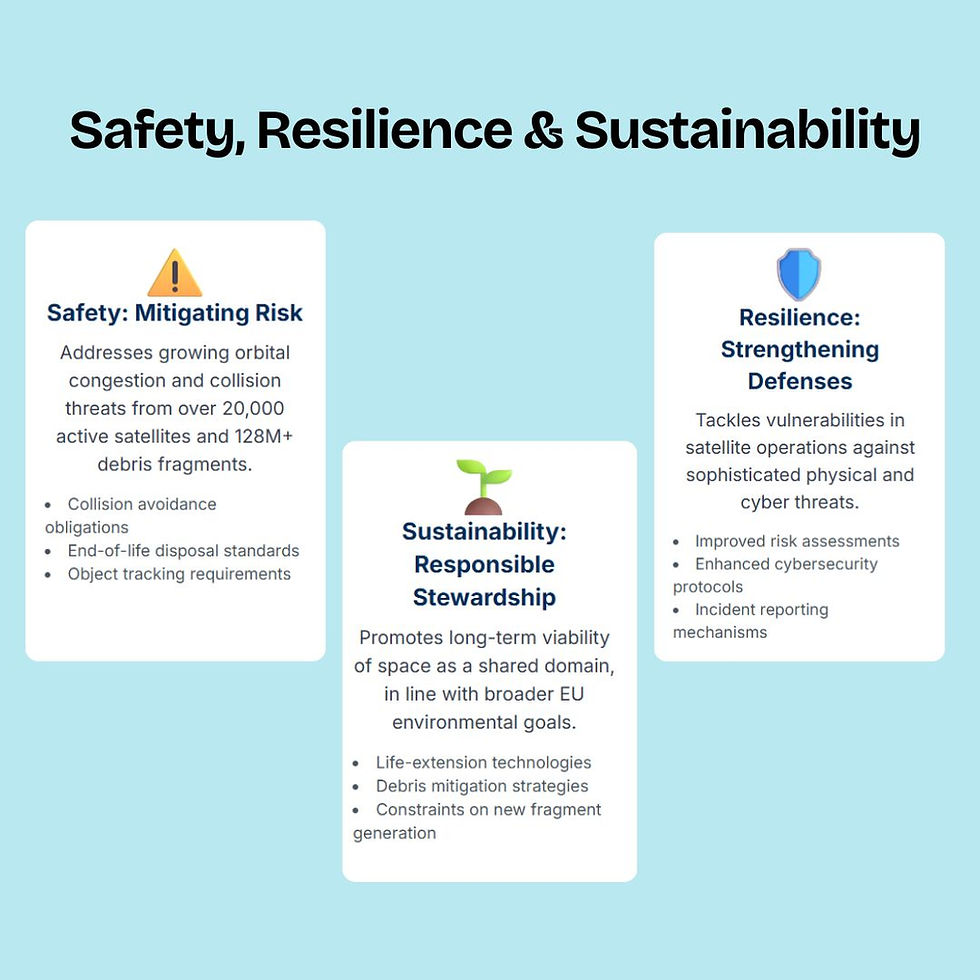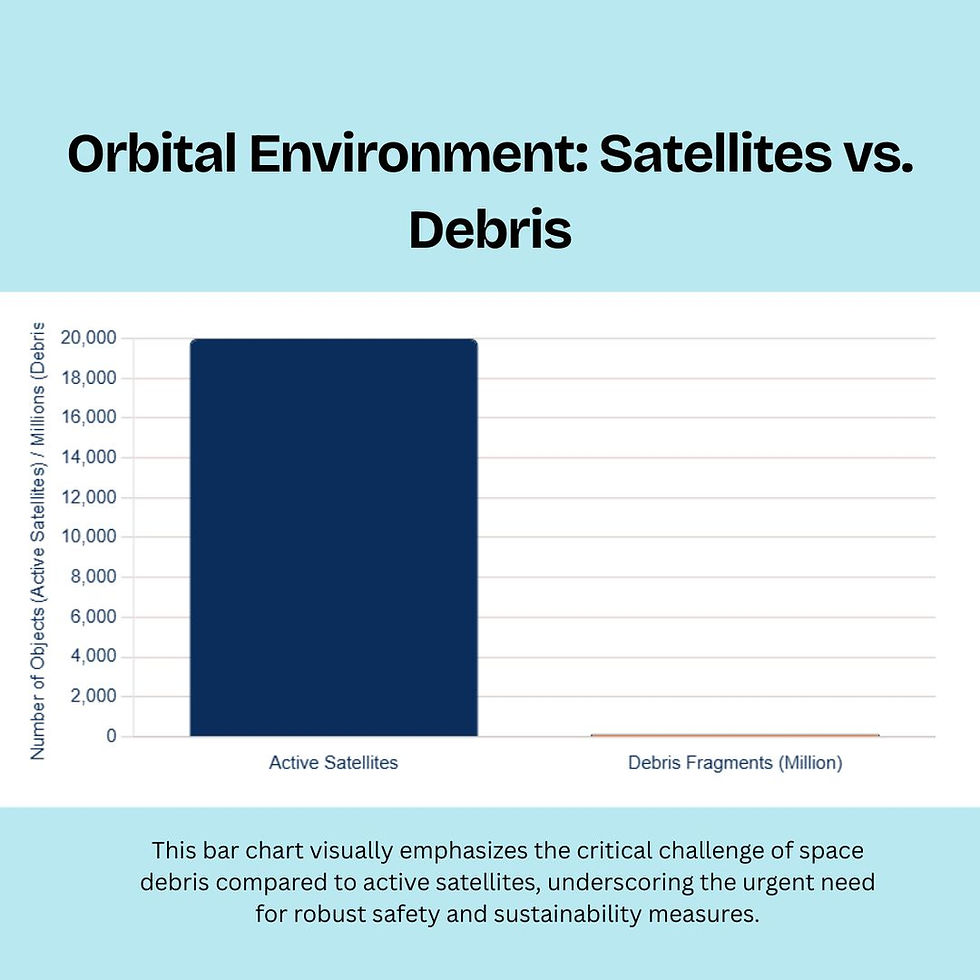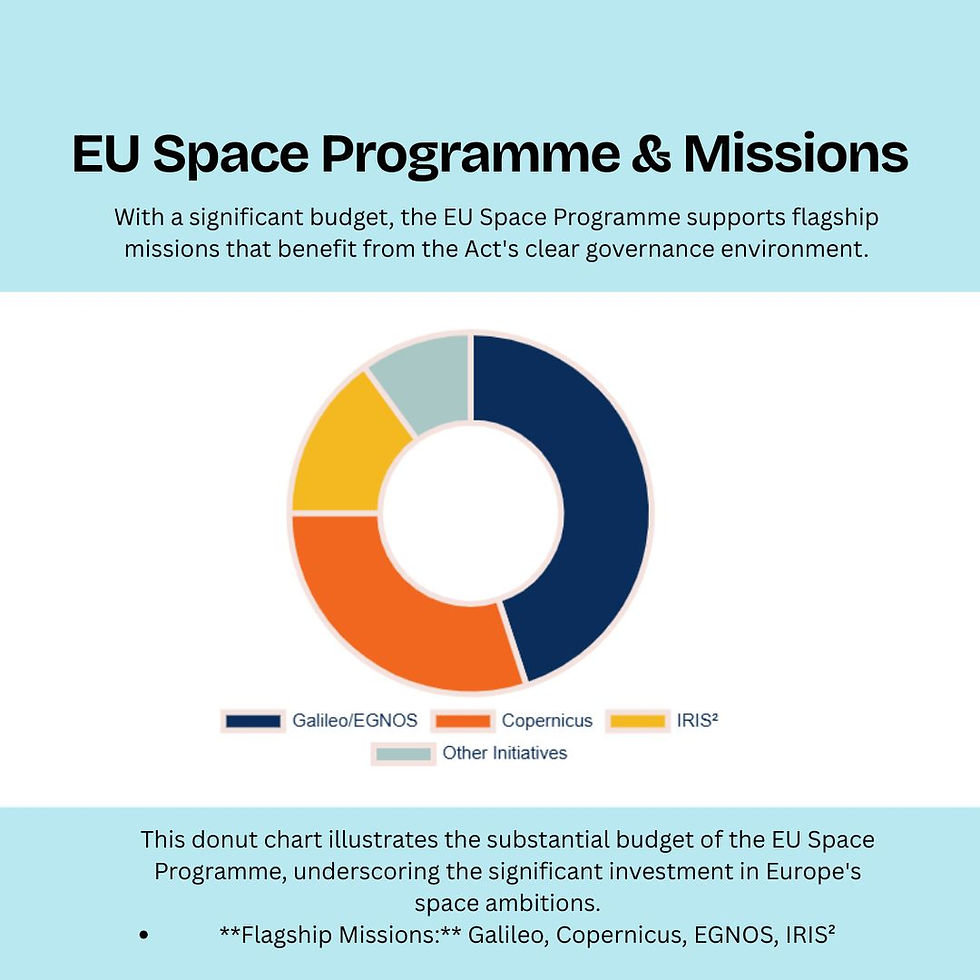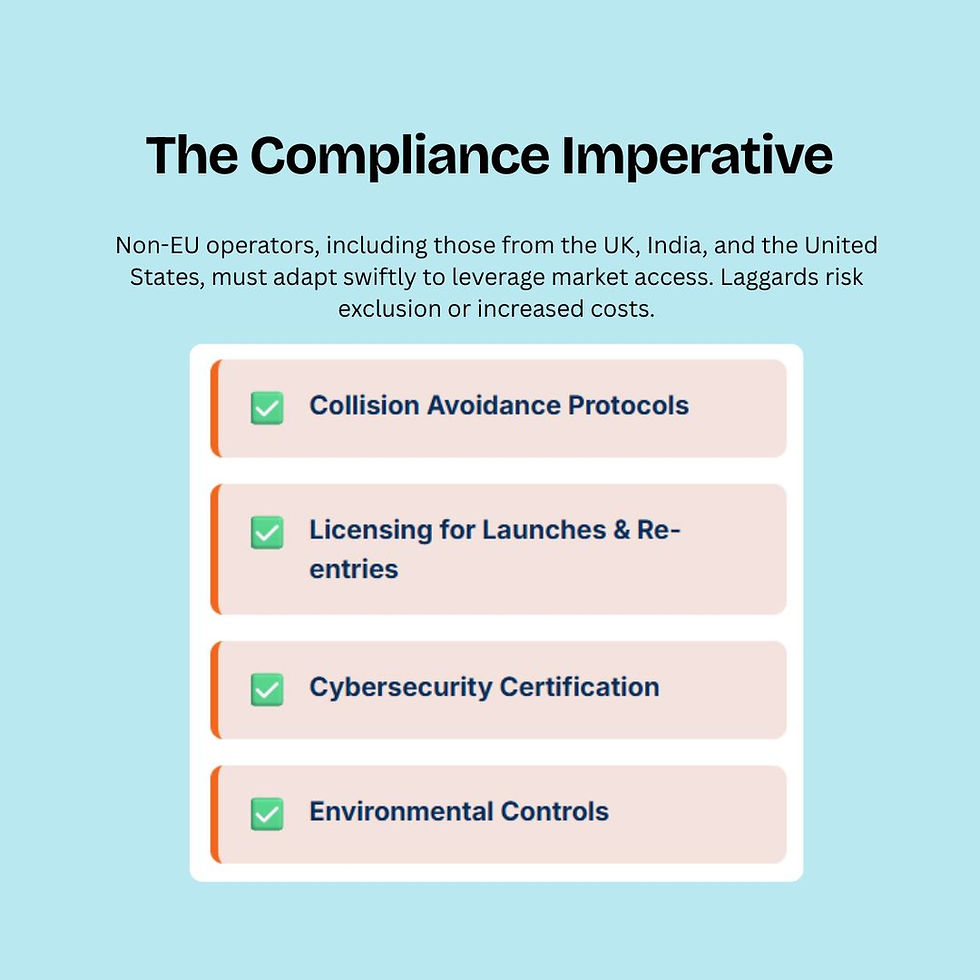EU Unveils Space Act: Unlocking Market Access and Ensuring Orbital Safety
- News Desk

- Jun 25, 2025
- 4 min read
The European Commission’s landmark proposal of the EU Space Act marks a momentous stride in shaping a more integrated, secure, and prosperous future for the continent’s space sector. With its far-reaching ambitions to simplify market access, reinforce space safety, and promote a unified regulatory environment, this initiative stands as a pivotal turning point. For business leaders, diplomats, and stakeholders across the UK, India, and EU–India corridors, the Act embodies a strategic leap that combines economic opportunity with responsible stewardship, positioning Europe as a trusted partner in the evolving global space landscape.
At the heart of this initiative lies the creation of a truly Single Market for space services, ending the current patchwork of national rules that hinder cross-border activities. Presently, companies navigating multiple EU jurisdictions face overlapping requirements and inconsistent standards, which escalate costs and dampen competitiveness. By instituting a harmonised legal framework, most likely in the form of EU regulation rather than directive—the Act promises predictability and efficiency. In turn, this enhances investor confidence and levels the playing field for European and non‑EU firms, including those from the UK and India, seeking access to the European market.

The proposal articulates three fundamental pillars: safety, resilience, and sustainability. The safety component is designed to address the growing threat of orbital congestion and collision risk. Estimates indicate over 20,000 active satellites orbiting our planet, supported by more than 128 million fragments of debris—all of which could threaten critical infrastructure and proliferate risk. The Act seeks to introduce enforceable obligations for collision avoidance, end-of-life disposal, and object tracking, ensuring that both EU and non-EU operators contributing to the European market adhere to uniform standards.
The second pillar: resilience, tackles vulnerabilities in satellite operations through improved risk assessments, enhanced cybersecurity, and incident reporting protocols. The EU underscores the importance of bolstering the defense of space systems against increasingly sophisticated physical and cyber threats. As Commissioner Andrius Kubilius affirmed, “A space revolution is coming,” and with it the imperative that Europe remain “at the forefront” of safeguarding its strategic infrastructure. Business stakeholders, especially those in UK‑India and EU‑India partnerships, will welcome the transparent and consistent risk-management expectations laid out by the Act.

The sustainability pillar reflects a growing global awareness of environmental responsibility—even in outer space. The Act emphasizes life-extension technologies, debris mitigation, and constraints on the generation of new fragments. These efforts are in line with the EU’s broader environmental agenda and aim to ensure the long-term viability of space as a shared domain.
Beyond these core dimensions, the Act is strategically aligned with the EU’s broader Space Strategy for Security and Defence (March 2023) and its parallel Approach for Space Traffic Management (February 2022). Together, they form a coherent blueprint for shaping global norms and inserting Europe more forcefully into international governance debates—shifting the emphasis from voluntary standards to binding regulatory measures. This shift echoes past landmark legislation like GDPR, signaling that the EU intends to use regulatory precision as a means to project its values and standards worldwide.
For non-EU operators, notably those based in the UK, India, the United States, and beyond, the implications are clear: access to the European market will require full compliance with the Act’s requirements. This includes collision-avoidance protocols, licensing for launches and re‑entries, cybersecurity certification, and environmental controls. Companies that adapt swiftly can leverage Europe’s vast €1.5 trillion‑by‑2035 space economy, while laggards may face exclusion or incur additional costs, paralleling precedents set by GDPR and the EU AI Act.
The Act also outlines targeted support for SMEs and startups, including streamlined administrative assistance, enhanced access to testing facilities, and capacity‑building programmes. These tools are tailored to help emerging companies, whether domiciled in the EU, UK, or India, innovate without being overwhelmed by regulatory overhead.

This initiative arrives at a time when Europe’s space ambitions are deepening. Under the EU Space Programme (2021–2027), which has a €1.9–2.2 billion budget overseen by EUSPA, flagship missions like Galileo, Copernicus, EGNOS, and the secure-comms constellation IRIS² are already underway. The Space Act serves to complement these investments, providing a governance environment that supports Europe’s industrial backbone and attracts global collaboration.
From a diplomatic and commercial perspective, the EU Space Act offers a foundation for deeper partnerships. India, which is rapidly expanding its satellite and launch capabilities, stands to benefit from enhanced market access, regulatory clarity, and opportunities for joint ventures. UK‑EU cooperation will also gain from this clearer framework, helping to stabilise post‑Brexit arrangements in the space sector.
Likewise, global venture capital flows such as those enabled by the EU’s CASSINI initiative—will gain additional appeal. Investors gain confidence from a regulatory regime that is legally binding, predictable, and meshable with standards in other jurisdictions—making pan‑European or pan‑Atlantic investments more viable.

Strategically and economically, the EU Space Act is a key development. It reflects a broader geopolitical recognition that space is a contested domain, where sovereignty, resilience, and commerce converge. By foregrounding binding obligations rather than mere guidelines, the EU signals its determination to shape global norms, encourage investment, and ensure that space remains a safe, secure, and sustainable environment for all.
In closing, the EU Space Act represents both an opportunity and a pledge: to offer businesses and governments from the UK, India, and across Europe, a coherent, reliable, and ambitious route into the next phase of space exploration and commerce. Amid shifting global power dynamics, it positions Europe not as a passive bystander, but as a lead architect of the rules that will govern the space age. For decision‑makers, investors, and policymakers, this Act is a transformative anchor—one that blends governance, innovation, and diplomacy into a blueprint for future prosperity.




Comments